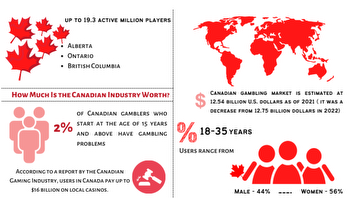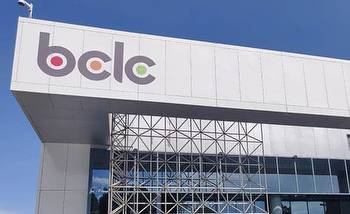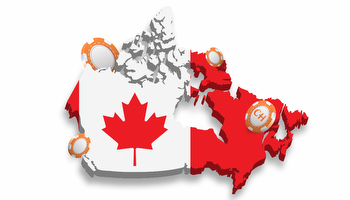Lottery corporations to illegal operators: Get out of Canada, eh…
Gaming supervisory bodies in five of Canada’s ten provinces have formed a coalition of sorts which seeks to engage the national government in assisting provincial authorities against online casino and/or sports betting websites which are doing business illegally in the country.
Authority bodies in the provinces of Alberta, British Columbia, Manitoba, Nova Scotia and Quebec collectively drew up an open-letter appeal to the national government. The coalition stated in part that throughout Canada, “offshore operators promote their illegal gambling websites by advertising mirror ‘free-to-play’ websites in all forms of media and, in particular, during popular live sporting events. These advertisements broadcast nationally and blur the line between provincially regulated gaming sites on the one hand and illegal operators on the other.”
According to Atlantic Lottery Corporation CEO/president Patrick Daigle, action from the federal government is necessary because “Research shows that the majority of players are unaware of whether an online site is legal in their province or not.”
On their part, the provincial regulators promise to “work to raise public awareness about the prevalence of illegal operators and advise media platform owners of their duty to comply with existing laws and regulations.” The coalition urges the national government to “enforce current laws and regulations to shut out these operators from the markets where provincial lottery corporations operate.”
Casino gambling and sports betting are currently legal in all of Canada’s provinces. Laws regarding casino gaming online vary: While the bigger provinces (including the five comprising the aforementioned coalition), some such as New Brunswick remain essentially unregulated.
According to market analysis firm H2 Gambling Capital, Canada’s online gambling market is valued at Can. $3.8 billion (approximately US $2.94 billion) in 2022 and is estimated to grow to Can. $6.2 billion (app. US $4.79 billion) by 2026.



































